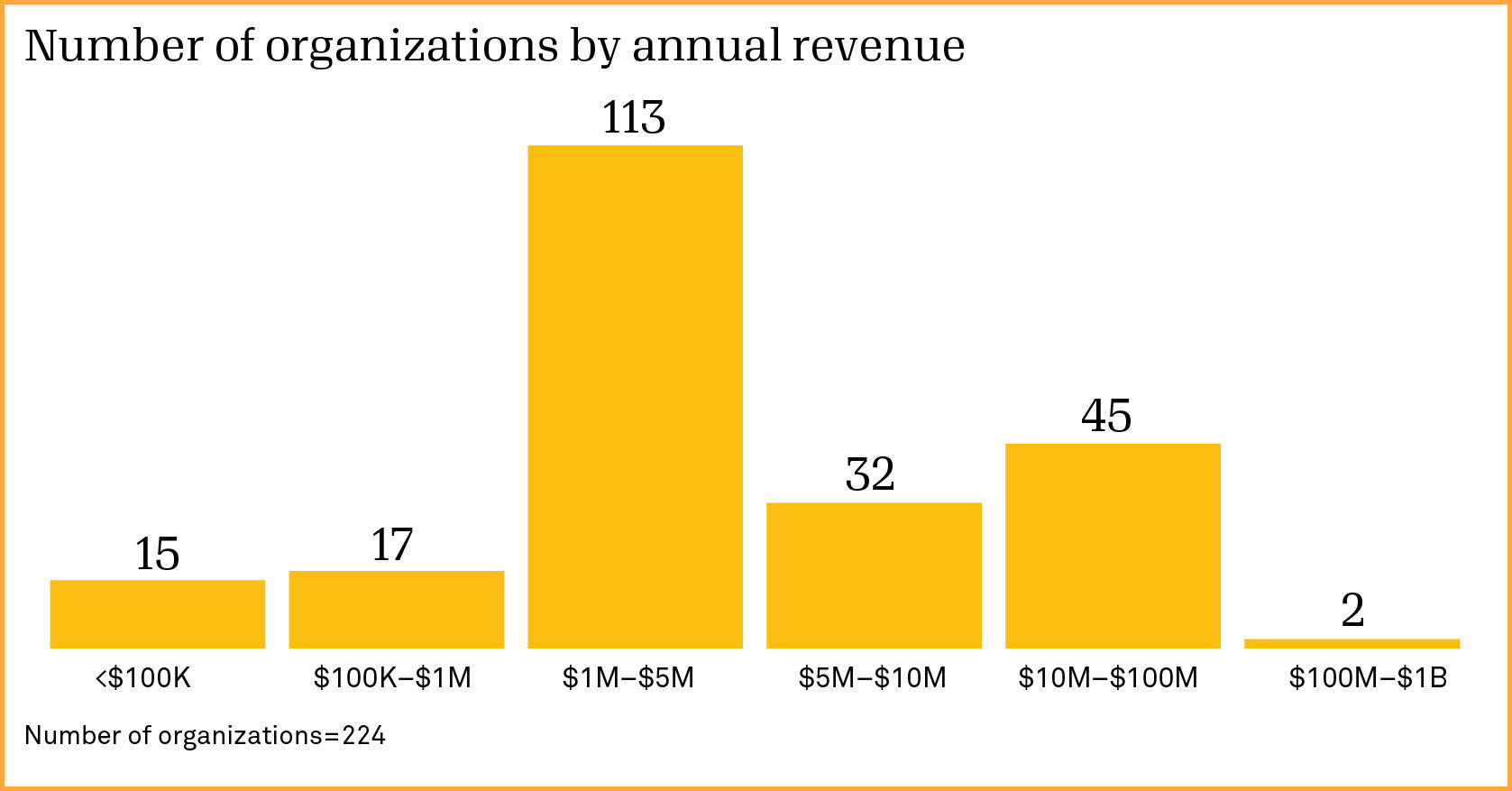This article is an extract from Transmission Private’s monthly newsletter, The Lede, which tracks the world of reputation management for private clients. You can sign up for the newsletter on our website via the tab at the bottom of this article or by completing the form here.
Billionaire Mackenzie Scott made headlines recently with a detailed list of her philanthropic donations since June last year, which amounted to a massive $3.86 billion into 465 projects. It takes her total announced commitments to over $12 billion since divorcing Jeff Bezos in 2019.

Number of gifts to organisation by annual revenue (Data: Candid.org)
Good for her. What’s the story? Philanthropy remains a key way for the wealthy to leave a lasting legacy, whether through named foundations (looking at you, Bill and Melinda) or, in Scott’s case, a set of discreet donations to other non-profits. What’s interesting in this case though isn’t the giving itself, but the circumstances behind it.
Which are? Scott received criticism before for not divulging exactly where her donations were going, which some saw as a sign of unaccountability. It’s part of a long, broader tradition of thought that sees the very idea of philanthropy negatively, as anti-democratic, cynical reputation laundering or even a mechanism for preserving structural inequality.
Sounds a tiny bit ungrateful… It’s certainly disconnected from the motives of philanthropists like Scott. She donates very widely, often to small charities, without demanding personal oversight on how the money is spent, a no-strings-attached approach Scott calls ‘seeding by ceding’ (control). Initially, she also did so anonymously.
What does all this mean for clients? What people choose to give, to whom and how are all clearly matters of personal choice. But the attention Scott received illustrates the complex way that philanthropy can be perceived. It isn’t always automatically or straightforwardly positive, which means the reputational implications should be carefully thought through.
Does it matter what people think? Not always. If you want to have impact without attention, you can give anonymously.
But taking a leadership position around a cause can help to convince others and increase that impact. Being open about philanthropy can also help others to have a more accurate, holistic view of what you or your family actually do.
What practical steps should we take? Would-be philanthropists should go in with their eyes open, as they would into an investment or business decision.
- Consider how philanthropy fits into the family’s or individual’s story. Is it consistent with current or former business and investment activities? Be your own worst critic for a moment – is there any way someone could throw harmful accusations of hypocrisy?
- Think out your personal connection to explain why this cause. Are you willing to speak up publicly, or in more discreet settings, about its importance and the work you’re doing to support it?
- Finally, consider how much time you’re willing to put into this. It’s fine to get personally involved with projects rather than take Scott’s arms-length approach, but know what you’re getting yourself in for.
Takeaway... Philanthropy can be a powerful part of a person’s wider legacy, but it doesn’t come without scrutiny, or effort.

